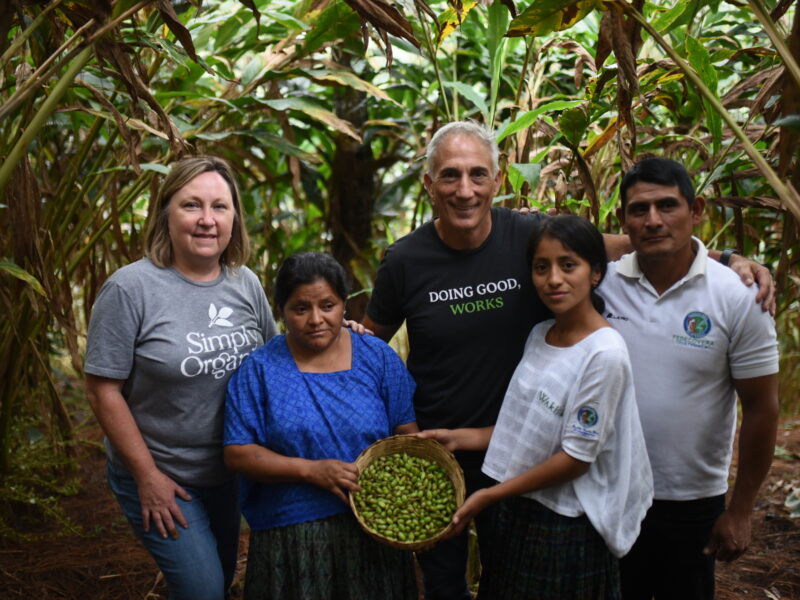Welcome to the world of organic dairy! If you are considering making the switch from conventional to organic dairy products, you are making a choice that benefits your health, animal welfare, and the environment. This guide, brought to you by Organic Voices, will help you understand the advantages of organic dairy and how to find the best products for you and your family.
Why choose organic dairy?
Two studies out of Newcastle University have confirmed the benefits of consuming organic dairy and meat. The papers, published in the British Journal of Nutrition, show that organic milk and meat contain about 50% higher levels of beneficial omega-3 fatty acids than conventionally produced products.
They also show that organic meat had lower concentrations of two saturated fats and that organic milk and dairy products contain 40% more heart-healthy conjugated linoleic acid (CLA) than their conventional counterparts.
And despite marginally lower iodine levels, organic milk had advantages in nutritional minerals and antioxidants, such as higher concentrations of iron, vitamin E, selenium and carotenoids.
While several other studies have supported the benefits of consuming organic milk and meat, these articles are groundbreaking – they are the first to use state-of-the-art meta-analysis techniques. Plus, these are the most comprehensive reviews ever conducted on these topics and drew upon findings from 196 papers on milk and 67 papers on meat from around the world.
The importance of omega fatty acid profiles
One of the main findings in the meat and milk papers was that both organic meat and dairy products had markedly higher levels of omega-3 fatty acids. This is important because a diet low in omega-3, especially when it includes a high amount of omega-6, carries with it the risk of cardiovascular disease, cancer, and inflammatory and autoimmune diseases.
But a diet with high omega-3 intake suppresses these conditions. For example, one study found that low ratios of omega-6 to omega-3 fatty acids suppressed inflammation in patients with rheumatoid arthritis, reduced asthma severity, and decreased mortality from cardiovascular disease. Other studies have shown that low omega-6 and omega-3 ratios lower the risk of breast cancer and dementia, and improve eye health.
The Newcastle papers show that consumption of organic meat and dairy could help consumers overcome the lack of omega-3 fatty acids in a typical Western diet without increasing calorie or saturated fat intake. “Omega-3s are linked to reductions in cardiovascular disease, improved neurological development and function, and better immune function,” said Chris Seal, professor of food and human nutrition at Newcastle University. “But getting enough in our diet is difficult. Our study suggests that switching to organic would go some way toward improving intakes of these important nutrients.”
This research follows up on several publications confirming the nutritional benefits of organic dairy. Research from Washington State University in 2013, for instance, showed that organic dairy has 25 percent less omega-6 fatty acids and 62 percent more omega-3 fatty acids than conventional milk, resulting in a 2.5-fold higher omega-6: omega-3 ratio in conventional compared to organic milk. And the approximate 2:1 ratio of omega-6 to omega-3 fatty acids in organic milk is close to the level scientists see as ideal for preventing cardiovascular disease.
Other benefits of organic dairy
In addition to higher levels of omega-3 fatty acids, organic dairy and meat provide several other health benefits. One fund that organic milk contains higher levels of CLA, iron, vitamin E and carotenoids, all of which are associated with health benefits.
Other studies have explored other benefits of organic dairy and meat. One study tackled antibiotic-resistant bacteria, finding that bacteria collected from dairy herds on conventional farms were more resistant to antibiotics than those on organic farms. Other studies looked at antibiotic resistance levels in meat such as chicken and pork and found that bacteria in conventional meat resisted antimicrobials more than organic meat.
Pesticides and growth hormones are banned from use on organics, so you can be sure that when you choose organic, you are avoiding potentially harmful synthetic chemicals.
Organic dairy products are produced according to stringent standards. Here are some quick takeaways on why making the switch to organic is a smart choice:
Health benefits
- No synthetic hormones or antibiotics: Organic dairy cows are not treated with synthetic growth hormones (like rBST) or routine antibiotics. This means you’re avoiding potential residues of these substances in your milk and dairy products.
- Higher nutritional value: Studies we’ve identified suggest that organic milk can contain higher levels of beneficial nutrients, such as omega-3 fatty acids, vitamins and antioxidants, due to the cows’ diet of organic, pasture-based feed.
Organic dairy is better for the animals
- Humane treatment: Organic standards require that dairy cows have access to pasture, are treated humanely and have space to engage in natural behaviors. This means better living conditions and lower stress for the animals.
- No harmful practices: Organic farming avoids harmful practices such as tail docking and unnecessary confinement, promoting better overall animal welfare.
More sustainable
- Eco-friendly farming: Organic dairy farms use sustainable farming practices that enhance soil health, reduce pollution and promote biodiversity. By avoiding synthetic pesticides and fertilizers, these farms protect our water and air quality.
- Lower carbon footprint: Organic dairy farming often involves more pasture time for cows, which can lead to better carbon sequestration in the soil compared to conventional farming.
How to identify organic dairy products
When shopping for organic dairy, here’s what to look for:
- USDA organic seal: Products with this certification meet strict organic standards, including the humane treatment of animals and the prohibition of synthetic chemicals.
- Labels and claims: Look for labels such as “Certified Organic,” “100% Organic,” and “Made with Organic Ingredients.” These indicate varying levels of organic content and adherence to organic practices.
- Brand reputation: Get to know trusted organic dairy brands that make transparency and sustainability a priority.
Popular organic dairy products and brands we recommend
Organic milk: Available in various fat levels (whole, skim, etc.), organic milk is a staple in many households. Look for grass-fed options for additional nutritional benefits. Try: Stonyfield, Organic Valley, Alexandre Family Farm, Horizon, Aurora Organic and Straus Family Creamery.
Organic yogurt: Rich in probiotics, organic yogurt is great for digestive health. Enjoy it plain, flavored, in sauces or as part of a smoothie. Try: Stonyfield, Organic Valley, Painterland Sisters, Alexandre Family Farm, Nancy’s and Straus Family Creamery.
Organic cheese: From cheddar to mozzarella, organic cheese is made from milk produced without synthetic additives and hormones. Try: Organic Valley, Applegate and Nancy’s.
Organic butter and cream: Essential for baking and cooking, these products ensure you’re using high-quality ingredients free from synthetic residues. Try: Straus Family Creamery, Organic Valley, and Alexandre Family Farm,
Organic dairy pouches: Convenient and nutritious, organic dairy pouches offer a wholesome snack option on the go, ensuring you get the benefits of organic dairy anytime, anywhere. Try: Stonyfield, Plum and Once Upon a Farm
Organic dairy shake, protein, and powders: Savor the nutritious goodness of organic dairy shakes, packed with natural proteins and vitamins, free from artificial flavors and hormones. Boost your nutrition with organic protein powders, providing clean, natural energy and muscle support without harmful chemicals or additives. Try: Orgain, Alexandre Family Farm and Horizon.
Organic ice cream: Indulge in rich, creamy organic ice cream made without synthetic additives, offering a pure and delicious treat that’s better for your health and the environment. Try: Alden’s and Straus Family Creamery
Making the transition
Rewards of switching to organic dairy
- Start small: Each time you shop, try to replace one or two conventional dairy items with their organic counterparts.
- Shop smart: Visit your grocery store, health food store, or farmers market to find the best selection of organic dairy products.
- Support local: Whenever possible, support local organic dairy farms and producers. This helps boost your local economy and ensures fresher products.
Join the organic movement
By choosing organic dairy, you’re choosing better health, promoting animal welfare and supporting sustainable farming practices. Each purchase makes a difference, helping to create a more sustainable and compassionate world. Enjoy the rich, wholesome goodness of organic dairy and the peace of mind that comes with making healthier choices for you, your family and the planet.
For more information on organic living and to stay updated with the latest in organic dairy, visit Organic Voices “Stay Current” page.
Together, we can make choices that matter!









